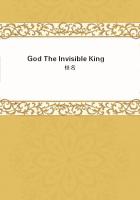As, to the Autumn breeze's bugle sound, Various and vague the dry leaves dance their round;Or, from the garner-door, on ether borne, The chaff flies devious from the winnow'd corn;So vague, so devious, at the breath of heaven, From their fix'd aim are mortal counsels driv'n.
Anonymous.
WE left Caleb Balderstone in the extremity of triumph at the success of his various achievements for the honour of the house of Ravenswood. When he had mustered and marshalled his dishes of divers kinds, a more royal provision had not been seen in Wolf's Crag since the funeral feast of its deceased lord. Great was the glory of the serving-man, as he "decored" the old oaken table with a clean cloth, and arranged upon it carbonaded venison and roasted wild-fowl, with a glance, every now and then, as if to upbraid the incredulity of his master and his guests; and with many a story, more or less true, was Lockhard that evening regaled concerning the ancient grandeur of Wolf's Crag, and the sway of its barons over the country in their neighbourhood.
"A vassal scarce held a calf or a lamb his ain, till he had first asked if the Lord of Ravenswood was pleased to accept it;and they were obliged to ask the lord's consent before they married in these days, and mony a merry tale they tell about that right as weel as others. And although," said Caleb, "these times are not like the gude auld times, when authority had its right, yet true it is, Mr. Lockhard, and you yoursell may partly have remarked, that we of the house of Ravenswood do our endeavour in keeping up, by all just and lawful exertion of our baronial authority, that due and fitting connexion betwixt superior and vassal, whilk is in some danger of falling into desuetude, owing to the general license and misrule of these present unhappy times.""Umph!" said Mr. Lockhard; "and if I may inquire, Mr.
Balderstone, pray do you find your people at the village yonder amenable? for I must needs say, that at Ravenswood Castle, now pertaining to my master the Lord Keeper, ye have not left behind ye the most compliant set of tenantry.""Ah! but Mr. Lockhard," replied Caleb, "ye must consider there has been a change of hands, and the auld lord might expect twa turns frae them, when the new-comer canna get ane. A dour and fractious set they were, thae tenants of Ravenswood, and ill to live wi' when they dinna ken their master; and if your master put them mad ance, the whole country will not put them down.""Troth," said Mr. Lockhard, "an such be the case, I think the wisest thing for us a ' wad be to hammer up a match between your young lord and our winsome young leddy up-bye there; and Sir William might just stitch your auld barony to her gown-sleeve, and he wad sune cuitle another out o' somebody else, sic a lang head as he has."Caleb shook his head. "I wish," he said--"I wish that may answer, Mr. Lockhard. There are auld prophecies about this house I wad like ill to see fulfilled wi' my auld een, that has seen evil eneugh already.""Pshaw! never mind freits," said his brother butler; "if the young folk liked ane anither, they wad make a winsome couple.
But, to say truth, there is a leddy sits in our hall-neuk, maun have her hand in that as weel as in every other job. But there's no harm in drinking to their healths, and I will fill Mrs. Mysie a cup of Mr. Girder's canary."While they thus enjoyed themselves in the kitchen, the company in the hall were not less pleasantly engaged. So soon as Ravenswood had determined upon giving the Lord Keeper such hospitality as he had to offer, he deemed it incumbent on him to assume the open and courteous brow of a well-pleased host. It has been often remarked, that when a man commences by acting a character, he frequently ends by adopting it in good earnest. In the course of an hour or two, Ravenswood, to his own surprise, found himself in the situation of one who frankly does his best to entertain welcome and honoured guests. How much of this change in his disposition was to be ascribed to the beauty and simplicity of Miss Ashton, to the readiness with which she accommodated herself to the inconveniences of her situation; how much to the smooth and plausible conversation of the Lord Keeper, remarkably gifted with those words which win the ear, must be left to the reader's ingenuity to conjecture. But Ravenswood was insensible to neither.
The Lord Keeper was a veteran statesman, well acquainted with courts and cabinets, and intimate with all the various turns of public affairs during the last eventful years of the 17th century. He could talk, from his own knowledge, of men and events, in a way which failed not to win attention, and had the peculiar art, while he never said a word which committed himself, at the same time to persuade the hearer that he was speaking without the least shadow of scrupulous caution or reserve.
Ravenswood, in spite of his prejudices and real grounds of resentment, felt himself at once amused and instructed in listening to him, while the statesman, whose inward feelings had at first so much impeded his efforts to make himself known, had now regained all the ease and fluency of a silver-tongued lawyer of the very highest order.















